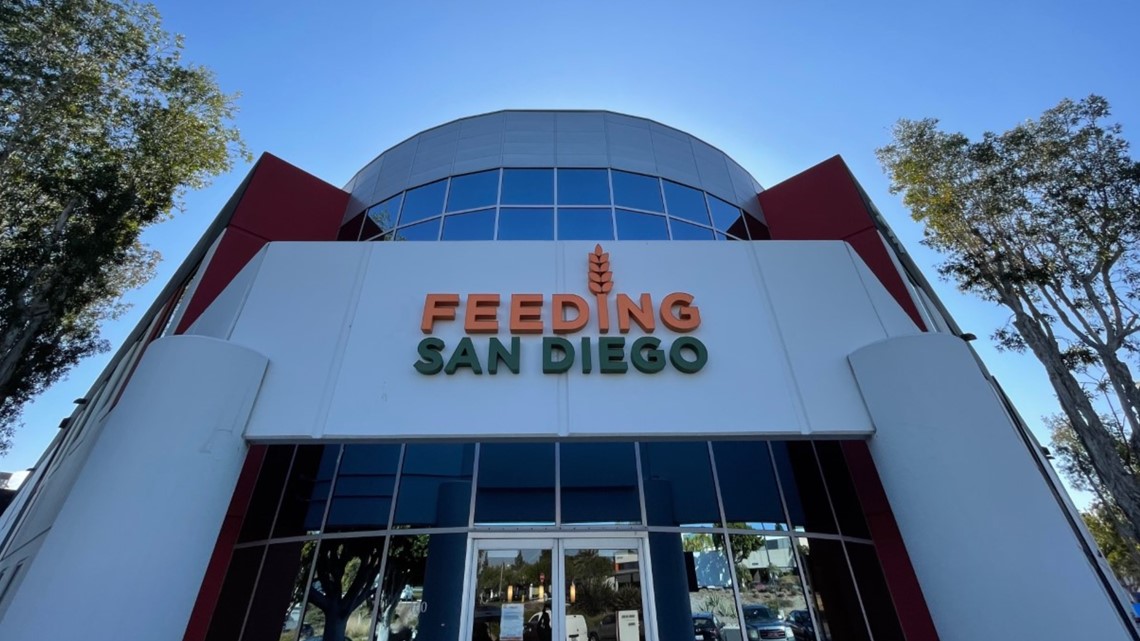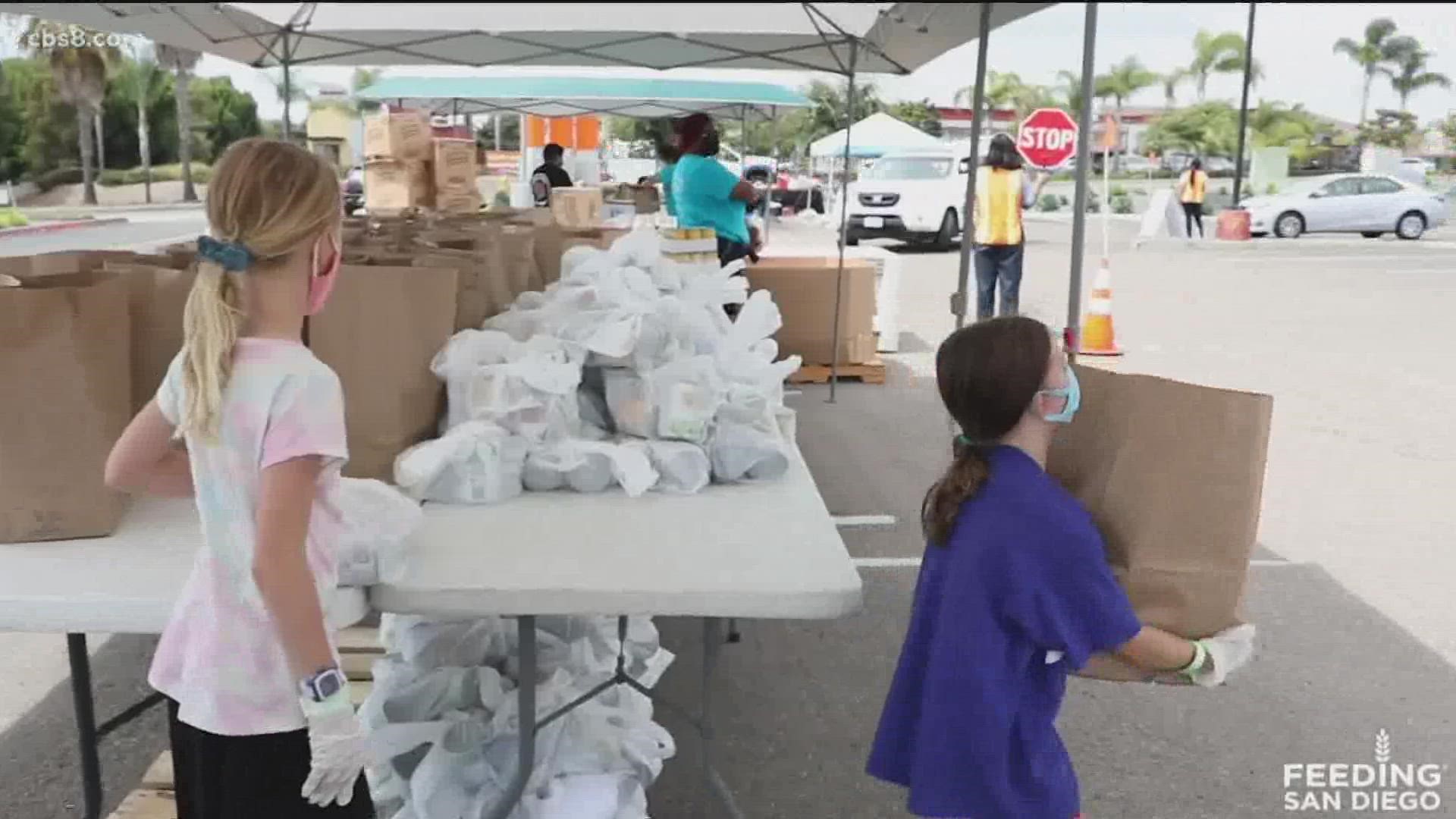SAN DIEGO COUNTY, Calif. — A new law that takes effect in the new year could increase supply to San Diego food rescue organizations and food banks. Senate Bill 1383 is aimed at dramatically reducing greenhouse gas emissions, with organic food waste being a large contributor of methane and carbon dioxide. As of January 1, 2022, grocery stores and other food suppliers will be required to donate all edible food waste to a food rescue organization or food bank.
With greenhouse gas emissions and food insecurity both on the rise across the country – the law could mean positive change on both fronts.
"According to ReFED, about 35% of all food goes to waste. What we’re trying to do is prevent that," said Patty O'Connor, the Chief Supply Chain Officer at Feeding San Diego. "It’s a really great win-win relationship all around. We don't want food wasted in a landfill. Nobody wants to throw away food so why should we have food thrown away when we can take that perfectly good, edible food and get it to people like our neighbors.”
Organic food that breaks down in landfills emits huge amounts of greenhouse gases every year – including methane – which is 26 times more harmful than carbon dioxide. The bill aims to reduce organic waste disposal by 75% by 2025 – getting that food to hungry families instead. In turn, it reduces greenhouse gas emissions and slows climate change. SB 1383 was signed into law by Governor Jerry Brown in 2016.
“This is serious stuff," said Governor Brown when signing the bill into law in 2016. "The fact that it may be a little complicated doesn’t mean the impact isn't devastatingly clear.”
That’s where nonprofits like Feeding San Diego come in. Starting in the new year, businesses and food suppliers will need to recover edible food that would otherwise go to landfills and instead pass it on to food rescue organizations. As an added layer of accountability – food suppliers must have a contract in place with a food rescue organization.


"Right now it's easy for grocery stores to throw away food," said O'Connor. "There’s really no penalty or fine. But going forward there will be and so they really do need to donate it.”
Feeding San Diego already coordinates 40.3 million meals to San Diegans every year through coordination with their nearly 300 partners. But nearly a third of the food they distribute has to be purchased. O'Connor said she dreams of a world where they don't need to purchase the food they distribute and instead can rely entirely on donations. Supporters of this bill and new law champion it as a win for food banks, rescue organizations, and hungry local families.
Feeding San Diego already coordinates 770 weekly food pick-ups. They distribute the food to nearly 300 partners that assist in distribution. The organization said they're prepared for any uptick in donations come the new year and ask any organization that needs to be in compliance with SB 1383 to reach out to coordinate donations in the future.
The California Department of Resources Recycling and Recovery, also known as CalRecycle, is the agency responsible for ensuring local jurisdictions have compliant programs in place. Those jurisdictions are responsible for enforcement over noncompliant residents and businesses, which could include citations. Lance Klug, Public Information Officer with CalRecycle, tells News 8 that as the law is implemented, their enforcement officers "will focus on compliance assistance and pursue enforcement for egregious offenders." Klug added that the flexibility of the program "allows for a waiver and exemption process for rural, low population and high elevation jurisdictions."
The CalRecycle website can also be used as a resource by residents and businesses on how to help the state reduce greenhouse gas emissions from organic food waste and reach reduction goals.
For now, the law applies to supermarkets and grocery stores, but come 2024 – restaurants, hotels, and schools will also need to comply.
WATCH RELATED: What this new California law means for your food scraps - June 2021

